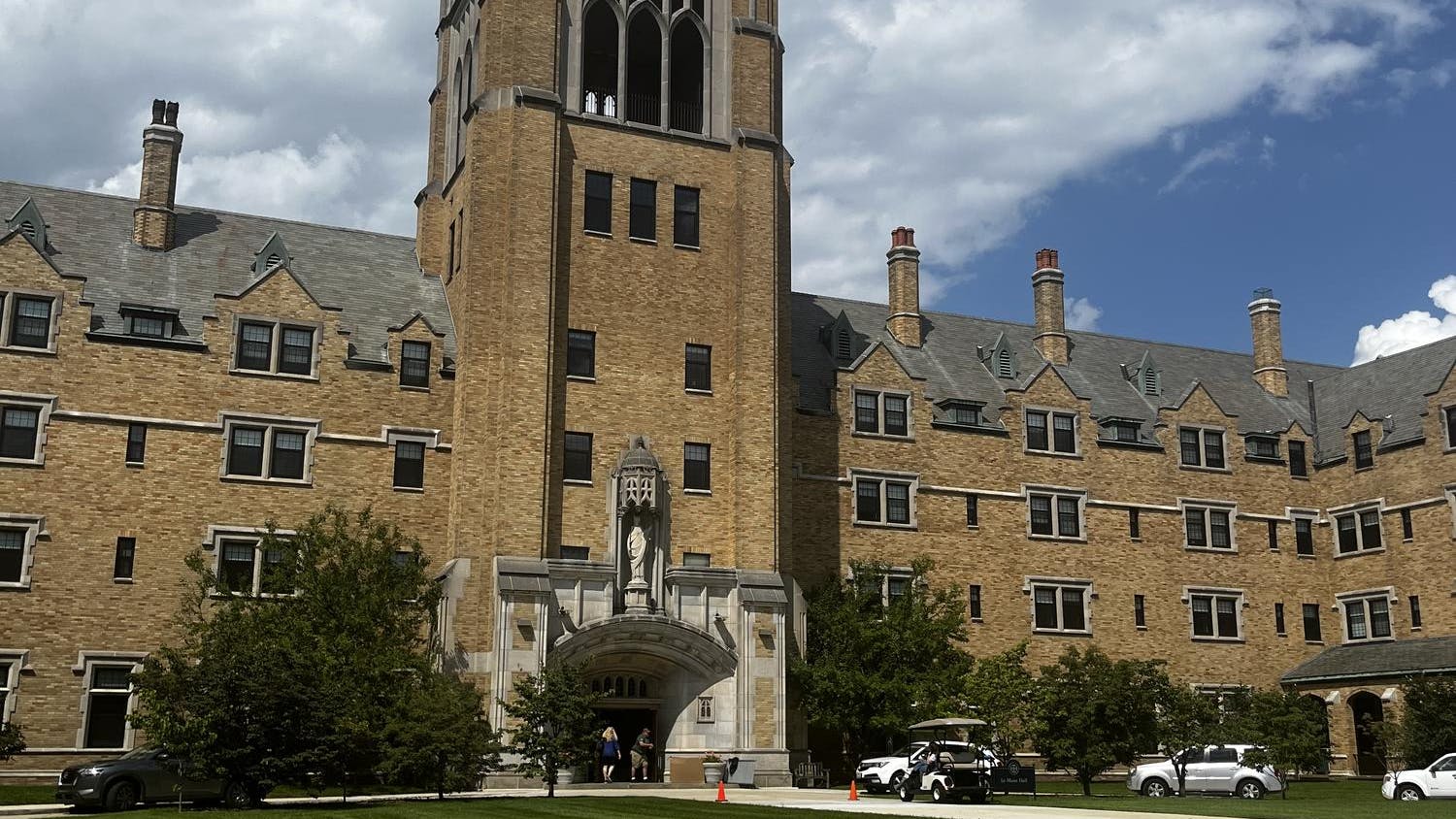Editor’s Note: Throughout the 2016 presidential campaign, The Observer will sit down with Notre Dame experts to break down the election and its importance to students. In this 11th installment, Associate News Editor Rachel O’Grady asks former chief speechwriter for President George W. Bush, current member of the Wall Street Journal editorial board and 1980 alumnus Bill McGurn about the significance of American Catholics in this election.
Rachel O'Grady: Starting off a bit on rhetoric, as a former speechwriter for President Bush, what are you noticing about speeches and rhetoric in this election?
Bill McGurn: On rhetoric, I recommend the Lincoln-Douglas debates — remember, Lincoln lost that election. The speeches are long and vivid. It’s not likely they would succeed in the age of the televised sound-bite. In our day, few campaign speeches are remembered past Election Day. Whichever your party, in office you have it harder because you can no longer simply paint a flowery vision of your proposals or a dark picture of your opponent's. Once president, your choices have real consequences and trade-offs. A great speech deals with these realities and transcends them, whether it’s the Gettysburg Address or [Lyndon B. Johnson’s Voting Rights Act] speech.
ROG: What is the significance about Catholicism and, obviously, particularly American Catholicism in this election? Beyond that, what’s the impact and/or significance of the VP picks for both candidates?
BMG: Tim Kaine embodies a decades-long effort, prominently encouraged by institutions such as Notre Dame, to make a safe space for pro-choice Catholic Democrats. Mr. Kaine is what you get: an affable man who treats as sacred a Supreme Court decision (Roe v. Wade) that a) outrageously short-circuited the democratic process and b) ushered in the killing of tens of millions of the most defenseless members of our society. Too often abortion is treated as a single issue. In fact, it has proved the beachhead for an entire ethic that is hostile to life, hostile to marriage and, as we see from the contraceptive mandate, increasingly hostile to religion, religious Americans and religious institutions. So rather than leaven the American experiment, liberal American Catholicism has spent the last four decades accommodating itself to the secular zeitgeist, largely because of their surrender on abortion. When you point this out, the answer is almost never to defend their position but to raise phony claims of moral equivalence that Republicans are “just as bad.” It’s all very sad.
ROG: Hillary Clinton and Donald Trump are arguably (and polls have agreed) the two most disliked presidential candidates in history. What’s the significance of that?
BMG: Absolutely. Hillary Clinton’s negatives are sky-high. But Donald Trump’s are higher still. November’s election may well be decided by who turns off more rather than who attracts more. Meanwhile, Americans will watch the presidential debates the way they watched a Mike Tyson fight: to see if someone’s going to bite off the other side’s ear.
ROG: Terrorism, and in particular ISIS, has been a major talking point in this election. With your experience under President Bush, what is your take on the importance of terrorism and war in this election?
BMG: Barack Obama entered office with the view that the fight against terrorism is an issue of law enforcement, not war, and Mrs. Clinton supports that. Mrs. Clinton and Mr. Trump each talk tough on ISIS, but each has also campaigned against the “unnecessary” Bush wars in the Middle East. Mr. Trump talks tougher and will speak of [Islamic] terror, but thus far he has not offered a foreign policy that draws sharp and substantial distinctions with Mrs. Clinton’s, especially in the Middle East.
ROG: Turning it back to students and campus here, what do you think is the most important issue for students? What is gong to impact students the most, post election?
BMG: Students share the general interest in a safe and prosperous and hopeful America. But because students are young and starting out, they have a greater stake in a dynamic economy that gives people at the bottom hope and gives all citizens the confidence that they can make a better life for themselves and their families. Except for those who are already wealthy and well connected, you won’t get this with 1.1 percent economic growth we now have.













